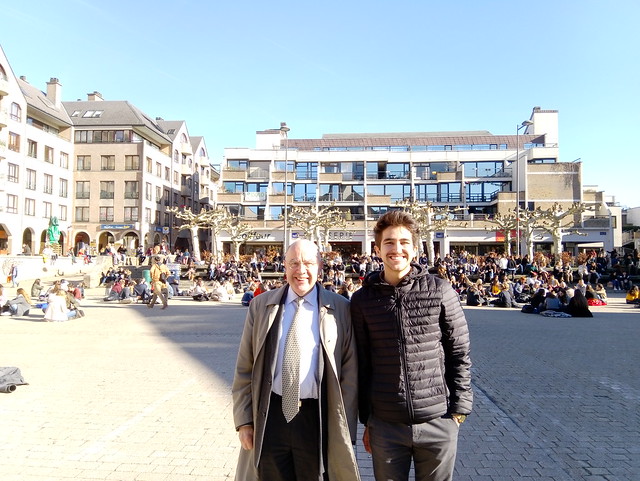It must have been in the 1980s that I met the first Fulbright guest I had the pleasure to welcome. At that time I was a young assistant at KU Leuven, and since then I have lost count of the opportunities to be the host of both Fulbright professors and teaching assistants.
In the earlier years, when universities were less well equipped than they are today to arrange accommodation and deal with the administration for visiting scholars and TAs, my task included helping guests to fight the good fight against red tape, which in Belgium could be a daunting task. I shall never forget the huge boxes that arrived for Professor Sanford Pinsker, care of Guido Latré, at the Leuven customs office near the canal. For some obscure reason, which even the customs officers were unable to explain, the ‘normal’ procedure meant that the boxes had to remain dormant for weeks in their enormous storage space before my guest and his family could prod them open in their temporary Belgian home. However, as so often in Belgium, there was a way in or out through a back door, and I learnt all about ‘versnelde inklaring’ (fast-track customs clearance) to get them out of the Kafkaesque hangar where they were waiting to be transported, one by one in separate journeys in my battered Renault 6, to their destination. Afterwards, when he had recovered from the trauma, Professor Pinsker wrote an epic poem about it.
Especially from 2001 onwards, when I was working as a professor on a full-time basis for UC Louvain, Fulbright lecturers and teaching assistants became lifelong friends of both my colleagues and myself. The professors talked about American history and culture in their courses, and the assistants contributed significantly to our own courses in their seminar sessions and conversation classes. All of them, without a single exception, were very much appreciated by our students. Thanks to them, the students always acquired much more nuanced views of American people and their culture. Stereotypes do not survive when you meet real people who combine sharp insight into their own culture with openness to others, and who moreover are very good communicators.
The Fulbright offices, both in America and in Brussels, always proved to be extremely skillful at selecting them, and also in terms of the administration, they never put a foot wrong. I am deeply grateful to Maggie Nicholson, Erica Lutes, Elisabeth Bloxam and so many others for their administrative arrangements and for the excellent advice they have given me in all those years.
When I retire in a few weeks’ time, I shall carry with me the ‘Fulbright experience’ as one of the most cherished in my career. When academia brings cultures together in mutual respect and warm appreciation, a little miracle happens that has more profound impact than the usual scholarly discourse.
Guido Latré is a Professor of English Literature and Culture at UC Louvain. He holds a PhD in English Literature from Leuven University (1982) and taught English literature at KU Leuven from 1983 to 2001. He previously served as a visiting professor at Point Loma Nazarene University in San Diego, California.

